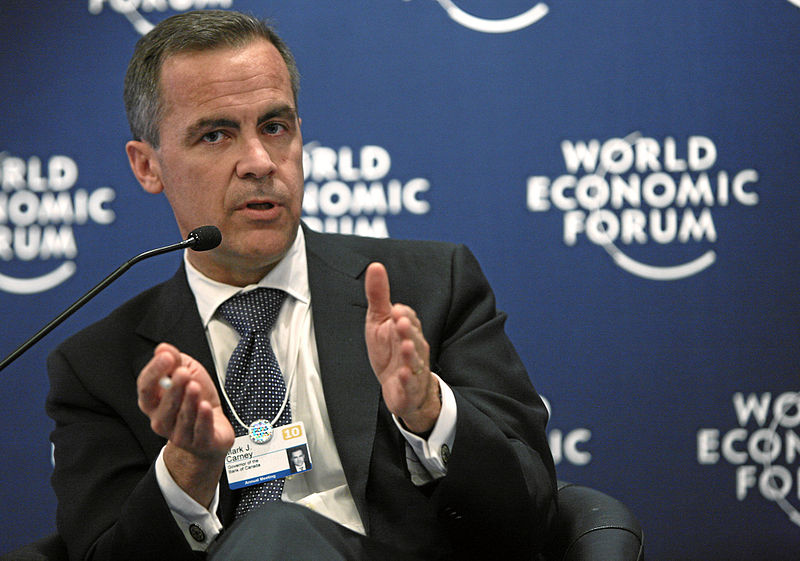We have had two announcements of central banks in Europe. The Bank of England with a new boss, Mr. Carney, made the first one. The second one was made by the ECB. The Bank of England mentioned that forward guidance and intermediate thresholds would likely be considered at the August assessment, which means some change to the monetary policy, but otherwise there were no changes and the BoE kept rates and QE program unchanged. The Governing Council of the ECB expects that the key ECB interest rates remain at present or lower levels for an extended (though not exactly specified) period of time. As you see, we heard the same story from Mr. Carney. It is expected that rates will stay low or will be lowered at least for 12 months. We have witnessed here some change to the policy of the ECB, because it refused to pre-commit to anything about rates in the past. This could lead to some currency war regime between Europe and the USA, because FED is allegedly considering tightening its monetary policy. But FED could be forced not to change its policy because of actions of the ECB and the BoE, due to the fact that Euro could weaken compared to US dollar, which would be negative for the US export activities.

http://www.flickr.com/photos/worldeconomicforum/4317698821/sizes/l/ (Original uploaded on en.wikipedia)
The ECB decided last week that Cyprus’s government bonds are temporarily ineligible as collateral after the country had its credit rating cut by Fitch Ratings and Standard & Poor’s. The central bank said it will reassess the potential eligibility of Cypriot marketable debt instruments upon the conclusion of the bond exchange.
Greece has to reassure Troika that it can deliver on the conditions attached to its bailout in order to receive in August its next tranche of aid worth of € 8.1 billion. Greece missed a term placing 12,500 state workers into a “mobility scheme” under which they are transferred or dismissed within a year to plug a fiscal gap. As a result, the IMF might stop its support to avoid violating its own rules. But I would not be so worried that the tranche will not come because we have German election in less than 3 months and Germans are eager to avoid any talk about yet another debt haircut for the ailing Greece. Indeed, German Finance Minister Wolfgang Schäuble ruled out such a possibility just last week. Tensions over bailout terms have also mounted in Portugal. Finance Minister Vitor Gaspar resigned on Monday due to the protests against austerity programs. But it is more than obvious that any delay of austerity program will push Portugal towards some sort of further assistance or some form of debt restructuring. Who knows, maybe we will finally see how the OMT works and what its exact rules are.
Europeans are furious by revelations that the U.S. spied on EU representations in Washington and New York. Some have called for a suspension of talks on the trans-Atlantic free trade agreement. The documents indicate that the US intelligence service was more active in Germany than in any other country in the European Union. But tensions were calmed very soon and France and Germany have backed down on threats to suspend US trade talks once the US promised to create more groups which will deal with data protection.
So, will China be the one that triggers a new global economic problem or not? It’s difficult to say, but interesting news from China is still coming. China has suspended the release of industry-specific data from a monthly survey of manufacturing purchasing managers last week. So it seems that China is not only manipulating economic data, it starts not releasing it. China´s shadow banking reached $ 6 trillion or 69 % of country’s GDP, and regular banks work as intermediaries within the system, e.g. last month many wealthy Chinese people received text messages promoting 6 % return (far above the official rate of 3.3 %) on special financial products with 90 days duration. The problem with the shadow banking in China is that almost nobody knows where money is invested and some are wondering if these products are not some kind of Ponzi scheme.
Non-farm payroll data was released on Friday, which was + 195,000 – more than expected. The unemployment rate stayed at 7.6% despite expectations of a drop to 7.5%. Prior to this report, ADP private payroll data was released, which was positive as well. During the month of June, the U.S. private sector added 188,000 jobs, driven by gains across all sizes of businesses, with small companies showing the largest overall monthly increase. So far good news? It would be if full time jobs were not down by 240,000 and part time jobs were not up by 360,000. But what do they cause? Will the FED change its policy? My bet is that they will not, but only time will tell.


















No comments
Be the first one to leave a comment.